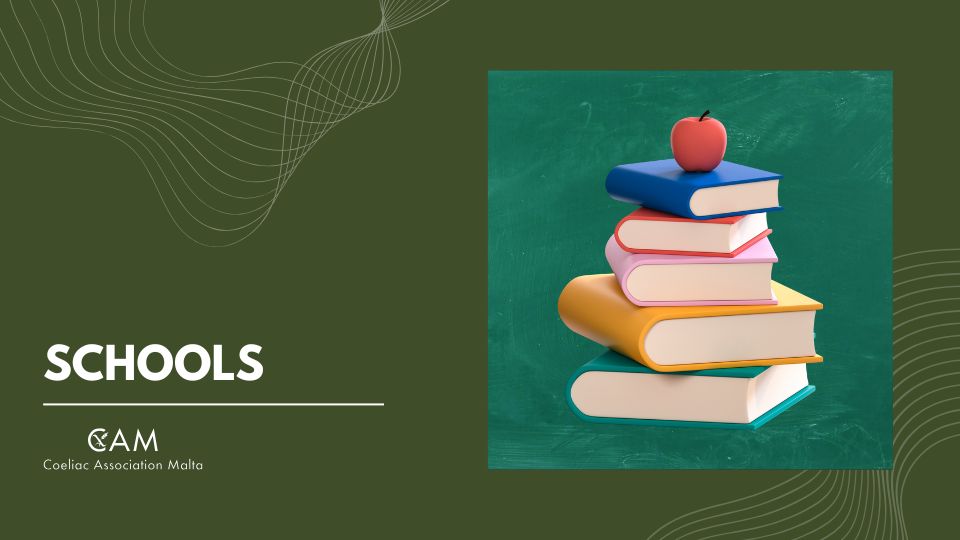
As a parent or guardian of a child who suffers from coeliac disease a challenging moment is when the child starts their educational journey. It is certainly an exciting time but dealing with coeliac disease can be challenging.
You will find that the most important aspect is communication. The more you explain and provide information, the more teachers and schools will understand the situation of your child.
In this guide we will go through what you as a parent or guardian should consider and useful tips not only to yourself but also to schools and teachers.
A simple explanation to Coeliac Disease
It may seem obvious but one of the most important steps is to be open about coeliac disease. The school or teachers should be aware of the child’s needs, in this case what coeliac disease is and how to manage it.
A short explanation that you can use is the following:
Coeliac Disease is an autoimmune disease where the body attacks its own tissues due to eating gluten. Gluten is a protein found in wheat, rye and barley. The only treatment for coeliac disease is a lifelong gluten-free diet.
It is also important to explain the importance of cross-contamination:
Whilst gluten-free food is widely available, one needs to also consider risks of cross-contamination. In schools this may result from gluten containing food, the child comes into contact with crumbs from surfaces and also from non-food items such as playdough.
Share information with your child
Being at school is certainly different from being at home, it is important for children to be aware of what to look out for in terms of gluten-free food and cross-contamination. Preparing them how to deal with coeliac disease is an important step in their development.
Keep in mind that mistakes happen, what matters most is learning from them.
Birthday Treats and other Food Activities
On certain occasions your child may experience situations where they might feel left out such as when fellow students bring birthday treats or a food activity (for example ‘Ftira Day’) is organised by the school. Unless gluten-free options are available, it is better to suggest ways to make sure your child is not left out.
Ask to be notified beforehand
For such occasions, ideally you as a parent or guardian are notified beforehand. This gives you time to provide your child with a gluten-free treat so at least they can still enjoy the occasion with the rest of the students.
Gluten-free treats at school
Another option is to ask the teacher or the school if it is possible to keep a small amount of gluten-free treats stored in the classroom to use for such occasions. Ideally you opt for prepacked items.
Non-food items containing Gluten
Children at a young age can accidentally eat items such as paints and playdough. Ideally if such items are used they are also gluten-free.
Here are the non-food items you should consider as items that may contain gluten:
- Paints
- Glue
- Crayons
- Playdough
Cooking at School
It may be a special activity or a Home Economics class. It is good to note that handling gluten containing ingredients will not trigger symptoms, gluten has to be ingested. Having said that, ingredients such as flour can remain airborne for a substantial amount of time. It also depends on the children’s age group.
Here are some things to consider:
- If possible provide gluten-free ingredients
- Cross-contamination: ideally gluten-free food should be prepared and cooked separately
- Students handling gluten containing ingredients should make sure to clean their hands with water and soap
For further details, you may also refer to our catering and food handling guide.
Mass
Should the school organise Mass, gluten-free hosts can be used.
You may find further details in our Holy Communion guide.
School Trips
It is important to speak to the school when a school trip is organised. Should the trip include food, gluten-free food must be provided or else prepare a packed lunch.
This also applies to travelling trips, certain details such as hotels and restaurants with gluten-free options need to be planned out beforehand. You can refer to our travelling guide for further details.
As with any other activity, children should not be excluded from school trips because of coeliac disease or their dietary needs.
Canteens and Vending Machines
Ideally canteens in schools (mainly secondary schools and higher levels) provide gluten-free options to students. A good compromise would be to at least provide prepacked items.
For further details on gluten-free catering and food handling, we suggest referring to this guide.
The same should apply to vending machines, ideally gluten-free options are available.
Letter Templates for Teachers and Staff
As mentioned before, communication is key. Providing all the necessary information to teachers and the school is very important.
The documents below are two templates which you can use to explain coeliac disease, handling cross-contamination and more. Such letters are especially useful for young children, but their contents can still be helpful for older children:
